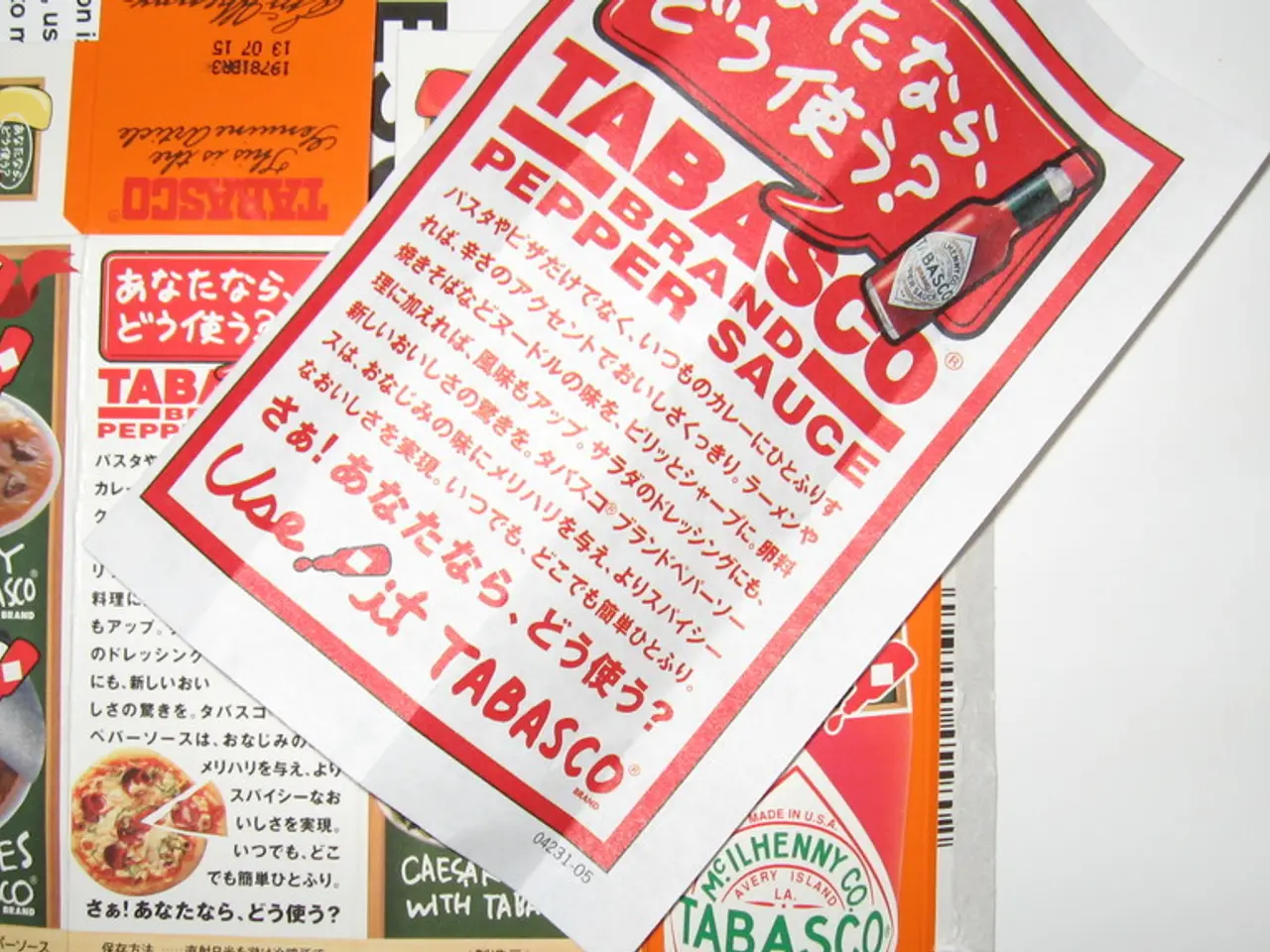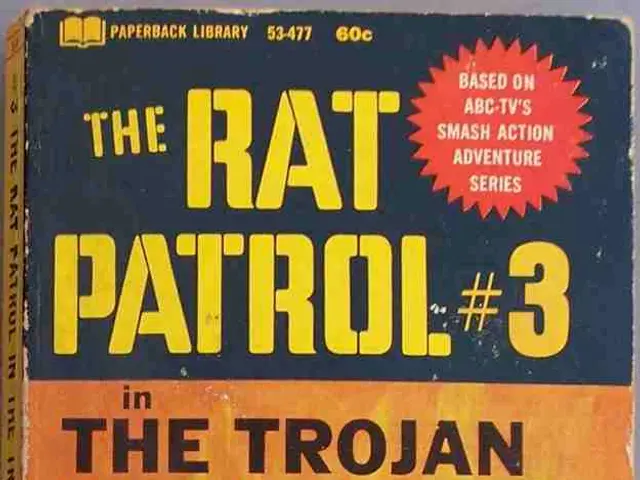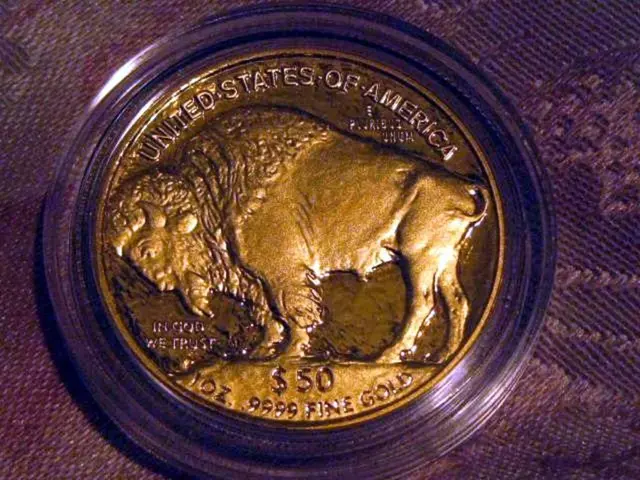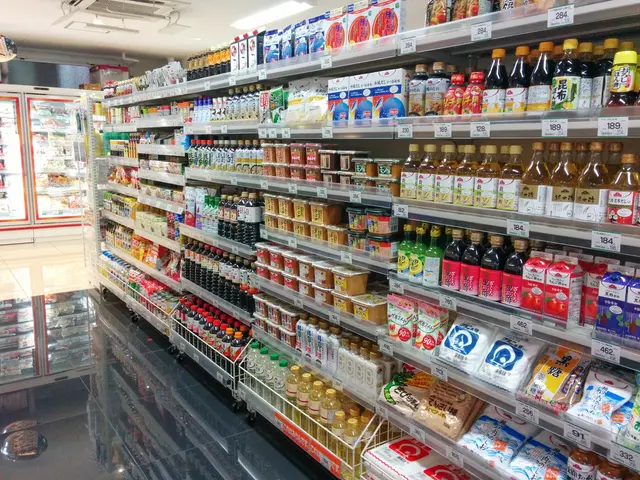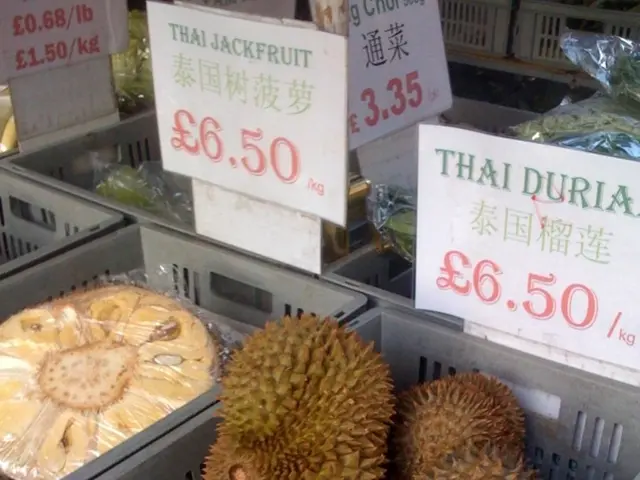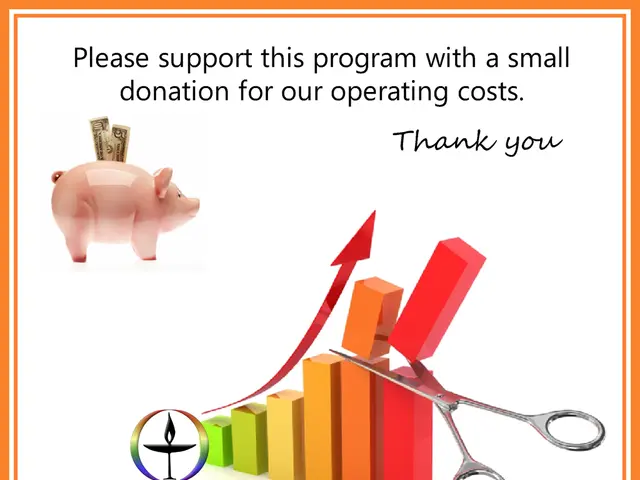Advertisements between U.S. and Indian companies turn into a battleground due to escalating tensions between the two countries.
In a bold move, Indian consumer goods company Dabur, valued at $11 billion, has launched a campaign to promote its toothpaste as a 'Swadeshi' (made-in-India) alternative to American brands like Colgate-Palmolive.
This campaign comes amidst escalating trade tensions between India and the United States, with US President Donald Trump recently imposing tariffs of up to 50% on imported Indian goods. In response, Prime Minister Narendra Modi's supporters have launched a WhatsApp campaign to boycott American brands like McDonald's, Pepsi, and Apple.
Dabur's advertisement, which appeared in a front-page newspaper advertisement this week, features unbranded toothpaste packs resembling Colgate packaging, with the message "Born there, not here" styled in the red, white, and blue of the American flag. The advertisement also includes a QR code that leads consumers to a shopping link on the Amazon India website.
This move by Dabur is part of a broader trend of companies intensifying promotion of local goods amid worsening trade ties with the United States. Indian e-mail provider Rediff has also taken out a newspaper ad promoting its service as the "mail of India" that helps to keep customers' business intelligence local. Amul, India's largest dairy, has been publishing cartoons featuring "Made in India" products on its social media accounts, and one animated ad showed its mascot holding an Indian flag and a slab of butter.
Media outlets, such as Amul cartoons and Rediff ads, have also emphasized the trend of promoting local goods, with the message of 'Made in India' products resonating strongly with the Indian public. This push towards nationalism and support for local products is not limited to the corporate sector, as government initiatives are also encouraging consumers to favor Indian goods over American brands in response to high US tariffs on Indian exports.
Colgate holds a 43% share of India's toothpaste market, followed by the Indian unit of Unilever, with Dabur in third position with a 17% share. However, with the growing sentiment towards 'Swadeshi' products, it remains to be seen how this trend will impact the market share of American brands in India.
The Indian market, with a population of 1.4 billion, serves as a significant market for American consumer goods, including those purchased from US online retailer Amazon.com. The reach of US brands has expanded into smaller towns in India over the years, making it a formidable competitor in the Indian market. However, with the growing push towards nationalism and support for local products, it seems that the tide may be turning.
As the trade tensions between India and the United States continue to escalate, it will be interesting to see how companies like Dabur and others will continue to adapt their advertising strategies to appeal to the growing sentiment towards 'Swadeshi' products.
Read also:
- Fitbit Versa 4 Experiences Continuous Price Drops on Amazon
- Asthma Diagnosis: Exploring FeNO Tests and Related Treatments
- Impact, Prevention, and Aid for Psoriatic Arthritis During Flu Season
- Heavy Rain in Delhi Causes Yamuna Flooding, Impacting DMRC's Access to Yamuna Bank Metro Station - Current Information
